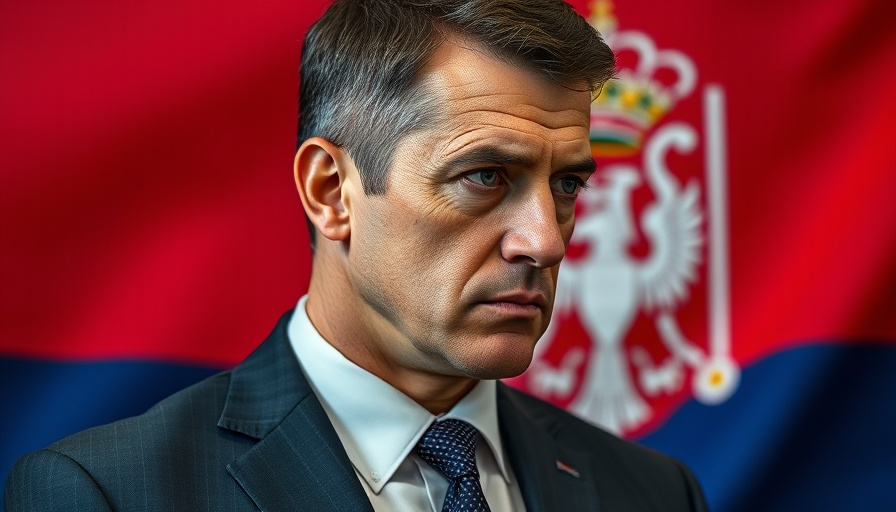
The Striking Developments in International Politics
A recent arrest warrant has sparked significant discussions about international law and the implications of political actions. The Bosnian court's warrant for Milorad Dodik, the leader of Serbia's Bosnian Serb region, points to the rising tensions regarding separatist movements within the Balkans. This incident unfolded while Dodik was attending an antisemitism conference in Jerusalem, emphasizing how political affiliations and historical grievances continue to influence contemporary diplomatic engagements.
The Significance of the Conference
The conference in Jerusalem, organized by the Minister for Diaspora and Antisemitism, Amichai Chikli, was intended to address critical issues surrounding antisemitism in today’s world. Ironically, Dodik's presence at an event aimed at countering hatred was met with swift disapproval from Israeli officials, illustrating a complex interplay between international relations and domestic sentiments. As a nation with a history of persecution, Israel’s response underscores its commitment to addressing antisemitism, even as it navigates the challenges presented by controversial political figures.
Past Context and Current Realities
Dodik is a contentious figure, recognized for his separatist rhetoric that has echoed concerns from various ethnic groups within Bosnia and Herzegovina. Historically, the region has navigated tensions stemming from the Yugoslav Wars. The repercussions of such divisions are still felt today, as evident from this warrant, reflecting ongoing fractures in a society trying to heal from its past.
The Broader Implications for Interfaith Dialogue
For believers and advocates of interfaith dialogue, Dodik's situation illuminates how political actions reverberate across religious lines. The challenge lies in fostering meaningful discussions about peace and coexistence while asserting opposition against figures who perpetuate division. Engaging in these issues through a lens of faith can provide a path toward understanding amidst complex political landscapes.
Moving Forward: What Can Be Done?
As members of the globally aware Christian community, it’s pivotal for us to remain informed about such events that transcend borders. Through advocacy for peace, justice, and humanitarian support across nations, individuals can actively contribute to bridging divides that historical conflicts have left in their wake. The role of the church could be key in promoting understanding and support for those impacted by divisive politics, especially in a region as historically rich and complex as the Balkans.
For those wishing to deepen their understanding of the ongoing complexities in international politics and interfaith relations, staying engaged in discussions around these topics is crucial. Consider how you can advocate for a world that embraces dialogue, understanding, and cooperation over conflict.
 Add Row
Add Row  Add
Add 








 Add Row
Add Row  Add
Add 

Write A Comment